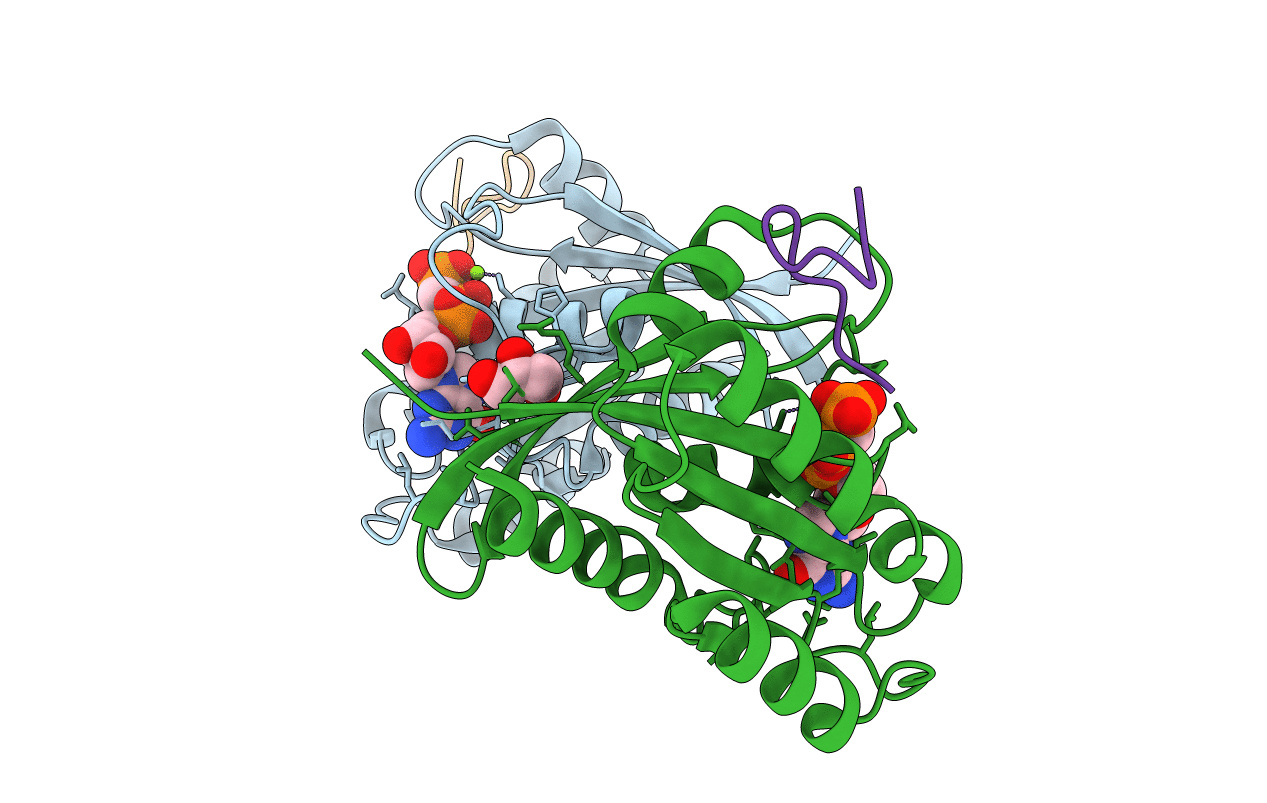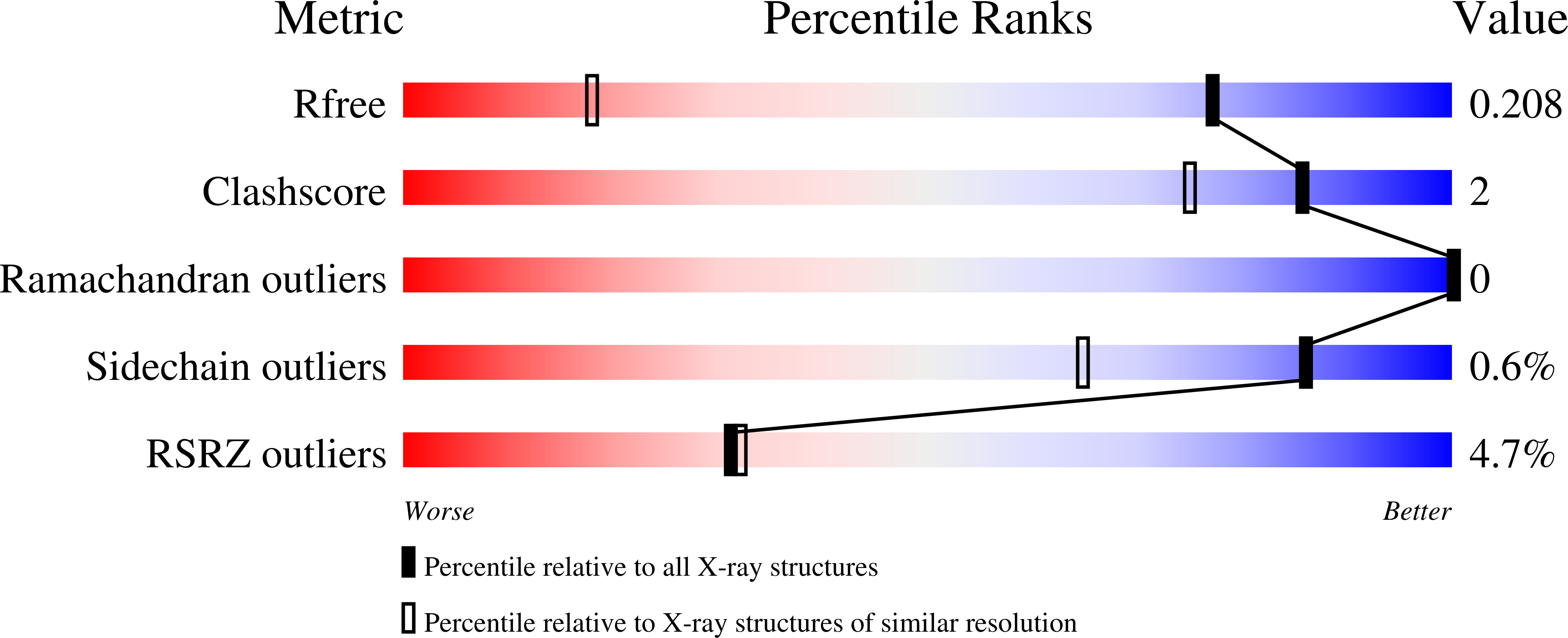
Deposition Date
2021-08-02
Release Date
2021-09-22
Last Version Date
2023-11-15
Entry Detail
PDB ID:
7ROV
Keywords:
Title:
KRAS G12D Mutant in complex with GMPPCP and cyclic peptide MP-9903
Biological Source:
Source Organism(s):
Homo sapiens (Taxon ID: 9606)
synthetic construct (Taxon ID: 32630)
synthetic construct (Taxon ID: 32630)
Expression System(s):
Method Details:
Experimental Method:
Resolution:
1.32 Å
R-Value Free:
0.21
R-Value Work:
0.19
R-Value Observed:
0.19
Space Group:
P 1 21 1


